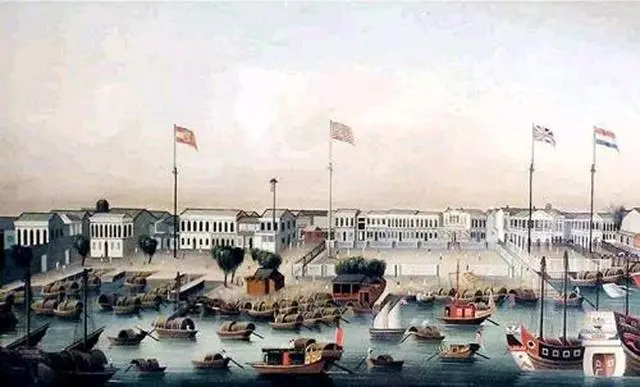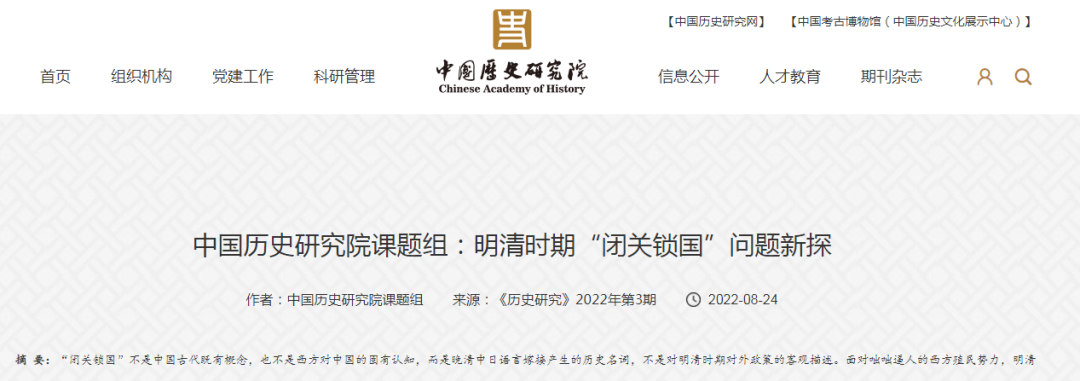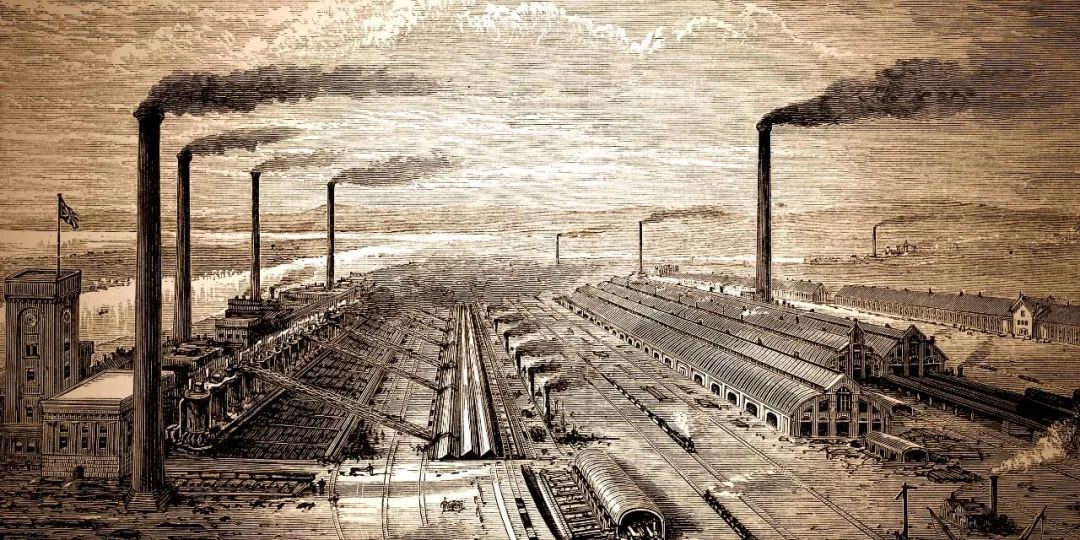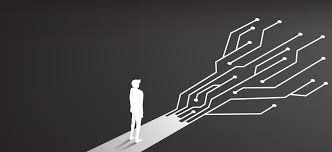
Is history a little girl who can be dressed up?

On August 24, the Chinese Academy of History published the article "New Explorations on the Problem of "Seclusion and Lockdown of the Country" in the Ming and Qing Dynasties. Although there is also a view like Hu Wenhui that, historically speaking, the point of view of this article is tenable and at least has its merits, but the majority of people's response seems to regard this as the latest signal. In the words of one of my friends, "Got it, it seems that 'closing the country' is not ignorant and backward. The difficult exploration of 'internal circulation' began long ago in the Ming and Qing Dynasties!"
More than one person came to ask my opinion. Originally, I didn’t intend to get involved in such a debate, not to mention that I couldn’t get away from it in the past two days, but after seeing too many people’s arguments, I couldn’t help but say a few words here.
I found that almost everyone's view presupposes a common premise, that is: history and reality are still a continuum . That is, what actually happened in history, and what it means, still has potentially subtle implications for the present.
It is for this reason that when people see "the theory of "closing the country's benefits", their first reaction is not what the historical facts are, but what kind of signal it sends. To be honest, as an academic topic, I am afraid not many people care about what happened in the history of seclusion and isolation. The reason why it has become a public topic this time is entirely because of its implied reality.
When talking about this incident, an article in "Xiu Ming Jing Lue" has a very representative point of view:
Historical research always serves contemporary times, and historical conclusions are often linked to contemporary politics. Changes in evaluations of past events actually reflect current trends, which require great attention.
In this case, discussing historical issues is actually a real political issue. Furthermore, a person's view of history often reflects his realistic political views; therefore, the Chinese people's interest in history often stems from their interest in politics. At least here, "all history is contemporary history" is not out of date.

People are so sensitive that they are not just chasing shadows. In the past history, the re-excavation and interpretation of history has repeatedly released huge energy, often rationalizing the current reality, so that some people lamented that "history is a little girl who can be dressed up" (Was Hu Shi's original intention? , there is also controversy, regardless of it).
In 1979, Dai Yi, an authority on Qing history, wrote "Historical Lessons from the Retreat Policy". Hu Wenhui said that this article "is a pioneer of contemporary historiography criticizing 'recession and closing the country'. Public opinion, in nature, is an extension of 'allusion to historiography'".
When the Chinese stock market was established in 1989, I remember that there were also textual research articles in the newspapers at that time, and I found out from Marx's diary that the revolutionary mentor also traded in stocks, proving that he at least was not against the stock market. No matter what the argument of such an article is, the timing of its appearance and its meaning are usually understood by Chinese people just by smelling it.
Kissinger once sighed that although the new China vowed to "break with feudal history", no one questioned "whether the historical precedents dating back to the present are related to China's current strategic needs", and it seems that this is a natural thing— —It is indeed appropriate to make such a sigh from an American, after all, the history of this country is too short, so that too many innovations have no precedent to cite.
When civilization is still in the continuum of tradition and reality, no matter ancient or modern, China and foreign countries, it will open up new paths through reinterpretation of history without a teacher, that is to say "innovation" as "retro", To show that the current practice is neither new nor reasonable. The book "Seas and Power" talks about this tendency of the ancient Greeks:
While Athens consciously chose to become a sea power, developing a distinct cultural identity, the process was shaped by pre-existing ideas and paradigms. In the Greek world, active change required confirmation by past precedents, which were often reimagined or even fictional at all.
This approach means that the "tradition" is not only still quite alive and thus constantly renewing itself, but also an authoritative source of rationality for current behavior. In this sense, this spontaneous tendency of the Chinese shows that although the New Culture Movement declared a break with tradition a hundred years ago, in fact the social mentality has not yet broken away from this continuum of tradition and reality.

Yet Kissinger's response also suggests that while the Chinese are accustomed to it, it doesn't necessarily have to be. Many modern institutional innovations are the result of breaking with tradition, and of course, there is no need to use tradition to justify one’s name—for a society that is facing the future, the “past” is no longer the source of authority. For a modern person, Even if people in the past acted like this, so what? Does this mean I have to do the same?
More importantly, as Anthony Giddens has observed in The Consequences of Modernity, the new discourse is actually constantly "looping" through its intervention object, constantly re-constructing that object, and Make the other party also learn to think in this way.
If that sounds abstract, here’s the thing: Reinterpretations of the past are unlikely to succeed if everyone realizes that they are really just serving the present.
Just imagine, Kang Youwei first wrote "Confucius' Reformation Examination" before the 1988 Reform, trying to prove that Confucius actually changed the system, so as to show that his approach was exactly what the ancestors did. However, no matter whether he believes it or not, most people believe that he is simply "using the past for the present". It is just that those who praise him admire his courage to reform the law, while those who oppose him think that he has misinterpreted the scriptures, which is simply nonsense, as if there is no master of scriptures. Take seriously the academic value of this book.
Perhaps it can be said that after the decline of classics, the history part played the role of the original classics. Historian Zhu Weizheng once discovered that one of the laws of Chinese academic history is that “study changes with skills”, which means nothing more than to say that when the focus of political concerns changes, the direction of scholarship will also shift, just like the original historical research. "Five Golden Flowers". However, the problem is that the result of doing so is often not only of dubious academic value, but also difficult to say how much it can play-because everyone knows that the fundamental driving force is not here, and the "reinterpretation of tradition" has become a "Fate of Ornaments".
Therefore, the real question is no longer "Is history a little girl to be dressed up", but "Why dress her up?" Orwell famously asserted: "Whoever controls the past can control the past. The future." But in the post-modern society, "controlling the past" may not be so important anymore. Does the road to "controlling the future" necessarily go through "controlling the past"?

When a society is truly modernized, although history and tradition are still the source of some meaning, the more complete the rupture towards modernity, the less people need to seek the rationality of present changes from the past.
On the centenary of the French Revolution in 1889, different political factions had engaged in long-term and intense debates on many issues surrounding this historical event. At this time, history was still alive and inspiring new trends of thought; At the moment, this National Day is already just a happy holiday for the French to release balloons. History has truly become the past, and "the past is like a foreign country", which is both unfamiliar and has little to do with current life.
However, it is precisely because of this that history has also been liberated. It no longer has to bear the burden, and has truly become an object that can be objectified. Anyway, no matter what conclusions historians draw, they are just intellectuals to people. Innocent interest, just let them go.
I noticed many years ago that the younger generation has forgotten a lot of history, to them it's just a vague blob, no matter what shape it is, it doesn't have much impact on their real life, and can't even understand why you take it so seriously These irrelevant questions. I sigh for a while, such a new generation is lucky, they don't have to bear the heavy history, maybe it also means that our society has some new turning points - the result is as you can imagine, in the next few years, I have been from time to time Some people were shocked and ridiculed as "washing the ground for the brainless little pink", and asked me, don't you know that "forgetting history will definitely repeat the same mistakes"?
After going through this, I can also imagine that when the “history-reality continuum” has not yet broken, discussions like Hu Wenhui, no matter what their original intentions, may also be seen as washing the ground for the theory of “closing the country and closing the country to benefit”. As for myself, I don't really care about the question itself, because in my opinion it really doesn't make much sense - come to think of it, who is taking things like "emergence of capitalism" seriously now? No matter how sensational it was at the time, in hindsight, it was not an issue of academic merit in itself.
Frankly, it's not worth wasting time on issues like this, and we'll even be surprised how many bright minds spend so much time arguing about it. Of course, it is not completely meaningless after all - although the discussion around this issue itself has little academic value, but why people are so heatedly debated, it helps us understand what kind of era people were living in at that time.
Like my work?
Don't forget to support or like, so I know you are with me..
Comment…